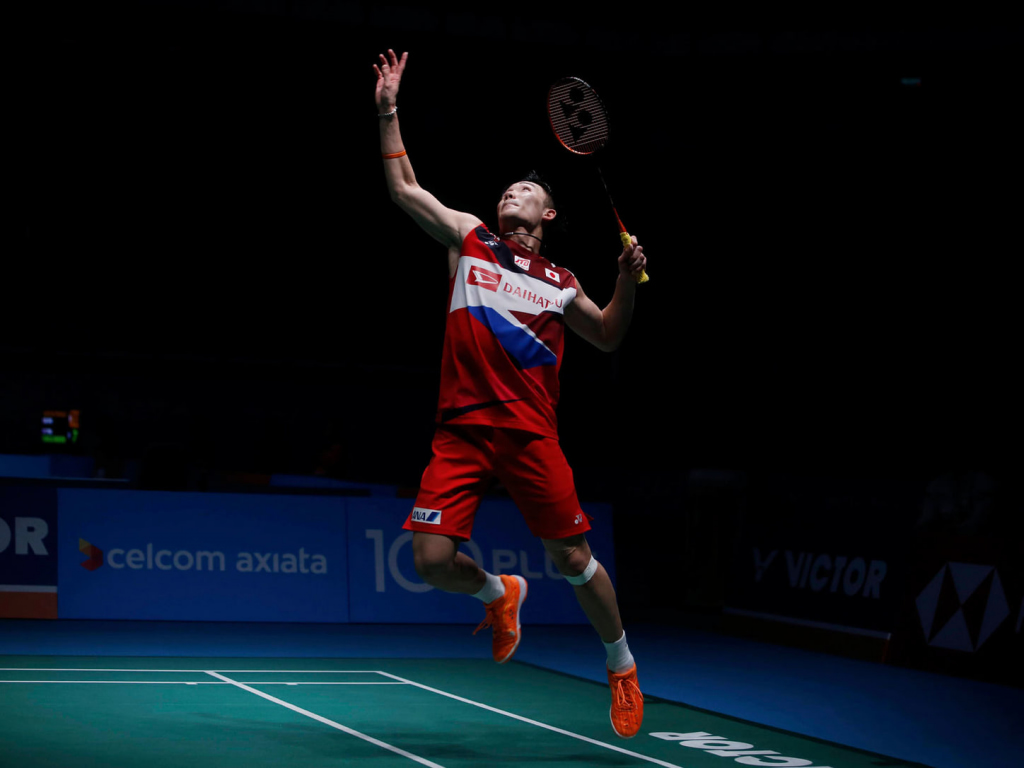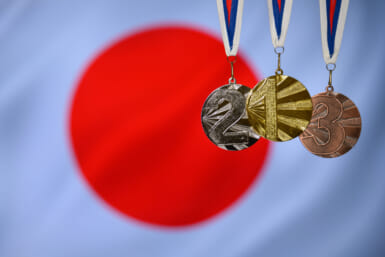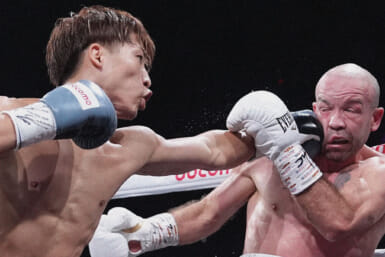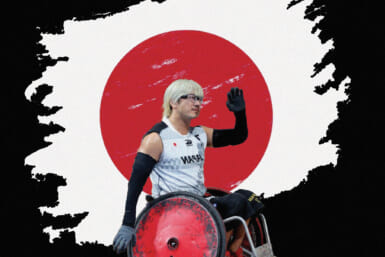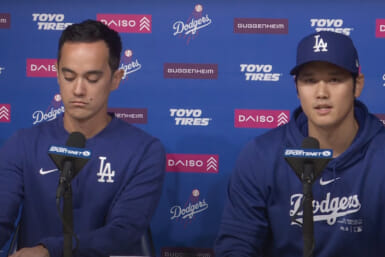For the latest in our Meet the 2020 Athletes series, we caught up with the world number-one male badminton player Kento Momota. A phenomenon in the sport, he recently won his second successive World Championship title and is the current favorite to take home gold in the men’s singles competition in Tokyo next year.
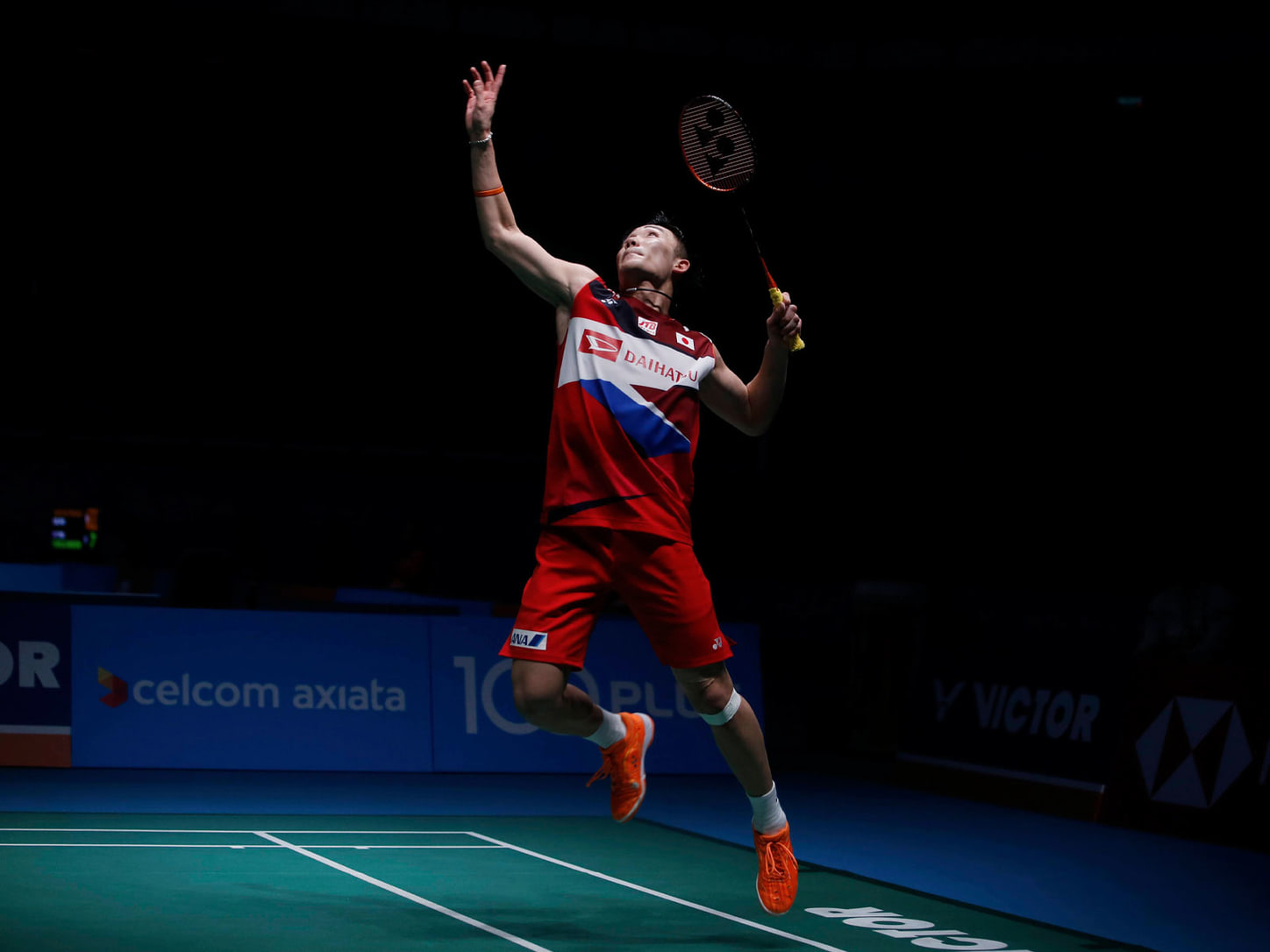
Photo: Shutterstock
Banned for a year from competing in 2016 (which meant he had to miss out on the Rio Olympics), Kento Momota’s form since returning in 2017 has been nothing short of scintillating. As well as winning the World Championship titles in 2018 and 2019, he’s also claimed two Asian crowns and eight World Tour titles.
“I couldn’t play, I couldn’t see any goals and my future career looked extremely dicey,” Momota says about his year away from the game. “I didn’t watch any of the 2016 Olympics because I felt too regretful. It was a tough time, but thanks to people who supported me I was able to get through it. I really appreciate everyone who was there for me.”
“I couldn’t play, I couldn’t see any goals and my future career looked extremely dicey”
The Kagawa Prefecture native was officially suspended by the Nippon Badminton Association in May 2016 after admitting to betting at illegal underground casinos. It came at a critical time in his career. A few months earlier, the then 21-year-old rising star became the first Japanese player to win a medal (bronze) in the Men’s Singles category at the BWF World Championships. He followed that up by taking the top prize at the Super Series Finals in Dubai and the India Open, helping to propel him to number two in the world rankings. The stage seemed set for him to challenge for gold at the Rio Games, however even without the suspension he doesn’t think he would have been ready.
“I was playing quite well at that point but don’t think I could have won the competition in Brazil,” opines Momota. “In fact, I would say at that point in my career it was probably impossible to take home the gold.”
Barring an injury or dramatic loss of form, the same certainly couldn’t be said for the 2020 Olympics. Momota is the dominant force in the men’s game right now. There have been times over the past 12 months when he’s looked almost unplayable, destroying fierce opponents seemingly without breaking a sweat.
After the suspension, there were doubts as to whether Momota could recapture the form that made him one of badminton’s top prospects. Ranked outside the top 250, he had to first earn the right to play the big boys again by competing at lower level competitions, appearing in near-empty halls. By the end of 2017, he was back amongst the elite and finished the year with five international titles including two Grand Prix trophies.
Things got even better in 2018. At the Asian Championships final in China, Momota defeated Olympic gold-medalist Chen Long, a player he’d failed to take a set off in their previous four encounters. The highlight of the year, however, came at the World Championships, also in China, where he became the first Japanese male player to lift the trophy, dropping just one set in the competition.
Continuing to make history, Momota triumphed at the All England Championship in March, again the first Japanese man to do so. He won a thrilling final against Denmark’s Viktor Axelsen to take home the oldest and one of the most prestigious trophies in badminton. A few months later he retained the World Championship, winning every match in straight sets including the final, a convincing 21-9 21-3 victory over another Dane, Anders Andersen.
Seen as the heir apparent to legendary Chinese player Lin Dan, Momota is a master at controlling the pace of the game and exploiting his opponents’ weaknesses. Quick-footed with a great recovery, he’s currently the most consistent player on the circuit but as his early exits at this year’s Malaysian Masters and Indonesian Open showed, he is not infallible.
“My weakness is that I sometimes play too carefully”
“My biggest strength,” he says, “is my hairpin shot [a drop-shot from below the net]. My weakness is that I sometimes play too carefully. Recently, opponents have analyzed my game and figured out how to play against me. I feel more effort is needed to combat this.”
Working out the best way to beat Momota is one thing; putting it into practice is another. The Japanese athlete has a fine record against the world’s best, particularly over the past couple of years. As a youngster, he was touted as a future great, though skeptics felt his laid-back attitude could hold him back. Now more focused than ever, he appears destined to fulfill that early promise.
“I started playing badminton when I was in the first grade at elementary school,” recalls Momota. “My sister played it and before realizing I was doing the same. In the sixth grade, I participated in the All Japan Elementary School Championships. If I hadn’t won that I would have switched to baseball, but I did win so decided to carry on. At junior high school, I began to think that I could have a talent for badminton.”
While at high school, Momota competed at the 2011 World Junior Championships in Taiwan where he won a bronze medal. Twelve months later, at the same tournament held in Japan, he managed to take home the gold. “I was delighted to win my first-ever world title,” he says. “The fact that I still felt regret from losing in the semi-finals a year earlier made the victory that much sweeter.”
Since then, Momota has achieved much in the sport yet is still remembered for the 2016 scandal that meant he had to miss out on the Rio Olympics. Fortunately, he has an opportunity to put things right on home soil next year.
It won’t be easy. Chinese pair Shi Yuqi and Chen Long are both strong as are Danish duo Viktor Axelsen and Anders Antonsen. From Indonesia, Jonatan Christie, Anthony Ginting and Tommy Sugiarto could all challenge. Other names to look out for include Taiwan’s Chou Tien-Chen, Korea’s Son Wan-ho, India’s Srikanth Kidambi and Japan’s Kenta Nishimoto.
So who does the 25-year-old world number-one consider his biggest rival? “Myself,” he says matter-of-factly. “I can only become stronger by overcoming my own weaknesses. I need to work harder so I can give back to those people who’ve supported me. I hope to qualify for the Olympics and play well for them. It’s my way of showing appreciation.”
Japan’s Other Badminton Medal Contenders
Women’s Singles
Rising star Akane Yamaguchi last year became the first Japanese female to top the BWF World Rankings list. The 22-year-old, who has won 15 career titles, will hope to improve on the quarter-final she managed at the 2016 Games. Nozomi Okuhara, a bronze medalist in Rio, is another leading contender. She won the 2017 World Championships in Glasgow.
Women’s Doubles
Wakana Nagahara and Mayu Matsumoto defended their doubles crown at the recent World Championships, defeating compatriots Yuki Fukushima and Sayaka Hirota who finished runners-up for a third year in a row. The two finalists are ranked one and three in the world. Sandwiched in between them (at the time of writing) are reigning Olympic champions Misaki Matsutomo and Ayaka Takahashi.
Men’s Doubles
Runners-up at the 2018 World Championships and bronze medalists in 2017, Takeshi Kamura and Keigo Sonoda are seen as Japan’s strongest pair in men’s doubles. At this year’s tournament, they lost in the quarter-finals to fellow countrymen Takuro Hoki and Yugo Kobayashi. Reigning Asian champions Hiroyuki Endo and Yuta Watanabe are another duo to keep an eye on.
Mixed Doubles
Yuta Watanabe also has a chance of a medal in the Mixed Doubles alongside partner Arisa Higashino. The duo, who first claimed a bronze together at the 2014 Junior World Championships, won gold at last year’s All England Open and followed that up with a silver medal this March. They’re currently ranked number three in the world.
Updated On April 26, 2021

